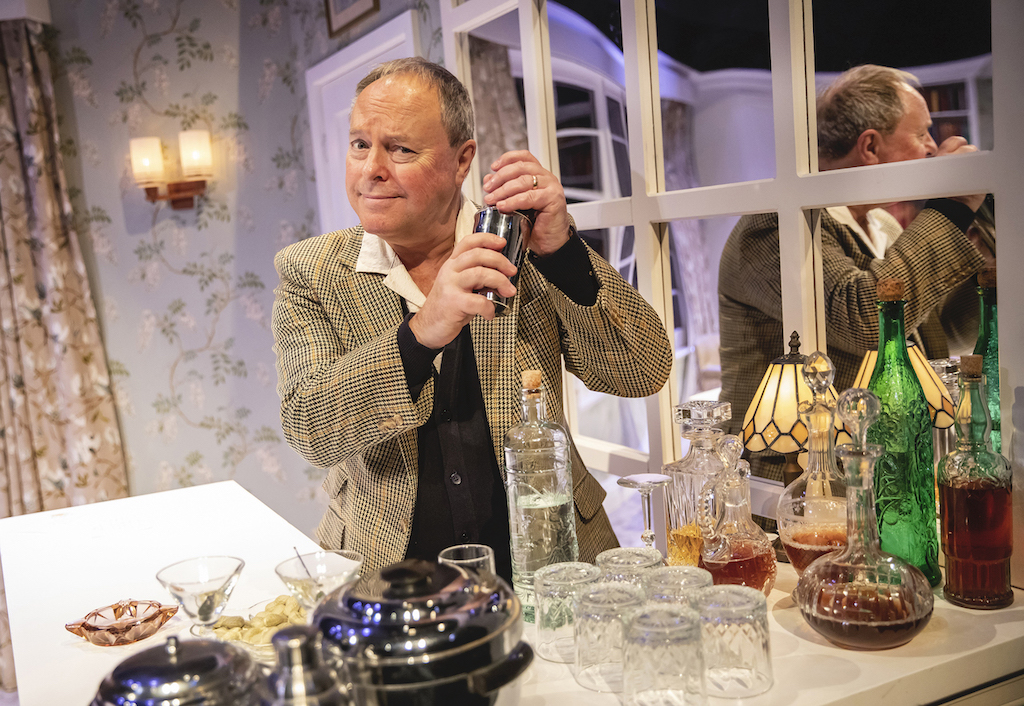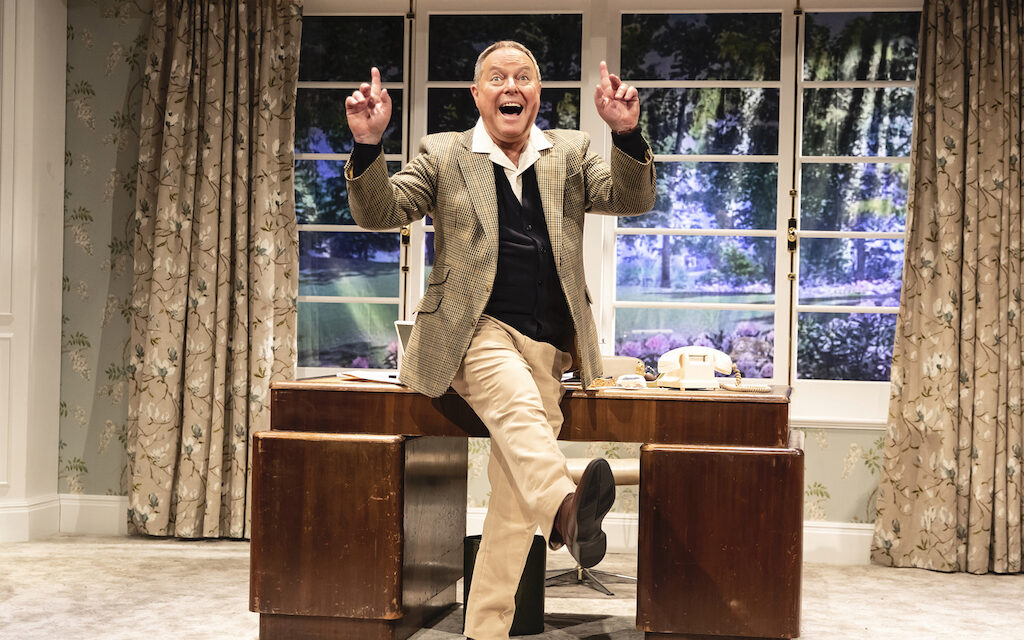
13 – 14 March
This reviewer’s knowledge of the work of PG Wodehouse is limited to vague and distant memories of the successful 1990s TV adaptations of “Jeeves and Wooster”, starring Stephen Fry and Hugh Laurie, and an awareness of Wodehouse’s apparently deserved place in the comic writing Hall of Fame…..without ever having read any of his novels. As a member of the uninitiated, I therefore arrived at the Everyman Theatre with an open and curious mind, and in expectation of a thoroughly enjoyable evening. I was not to be disappointed.
Writer William Humble and director Robin Herford’s play is set on Long Island in the 1950s and sees PG Wodehouse ruminating on his life and works. Robert Daws excels in the titular role and delivers an excellent performance, showcasing his obvious skills as a character actor in a role which fuses whimsical reminiscences, musical interludes and, in the second act especially, moments of pathos and self-deprecating honesty; Daws achieves all of these in a one-man show which keeps the audience, in the main, chuckling along. It is a very entertaining form of light entertainment.
For all of its positives, however, this is a show which seems to struggle with its own identity. The first act sets up the premise: against the backdrop of the creation of a new ‘Jeeves and Wooster’ novel, Wodehouse reflects, with both a humorous and wistful tone, on episodes from his earlier life. This is achieved both through the dictation of loving and heartfelt letters to his adopted daughter, Leonora, as well as simultaneously maintaining a dialogue with an American biographer with whom Wodehouse enjoys a strained relationship as he questions the author about his life story. These twin approaches serve to create a warm and engaging retrospective, largely due to Daws’ animated, versatile and enthusiastic performance, which includes songs from Wodehouse’s parallel career as a lyricist, penning the words to hit songs from the likes of Ivor Novello and Cole Porter, amongst others. Daws delivers these with charm and a lightness of touch which is admirable.
However, the second act adopts a largely different tone, in which Wodehouse explores the ‘great shame’ he felt following his brief ‘internment’ as a prisoner of war. The subsequent description of, and reaction to, this experience is in marked contrast to the frivolity of the opening act; we join Wodehouse in a similar ‘Wonderland’ as the whole raison d’être of the show comes into question. Is it a comic memoir, a confession, or a soul-searching rumination on an author’s place and purpose? The play struggles to be all three, mirroring Wodehouse’s own existential ramblings.
The set is well-designed and authentic-looking, but underused. One-man shows tend to work best in the confines of a smaller theatre where a more intimate setting is often more appropriate to the style and tone of the show. I cannot help but wonder if this would have been better suited to a longer run, with a smaller audience, upstairs in the Everyman’s Irving Studio Theatre. Daws’ interaction with other characters both unseen and off-stage, is commendable and a reflection of his versatility as an actor, but the drama and humour of the monologues are dissipated somewhat in a larger auditorium.
Nevertheless, this show has much to recommend it, and it was certainly well-received by an audience who both knew and appreciated the unique humour which reflects Wodehouse’s enduring appeal. Fans of his work, both new and old, will certainly enjoy this entertaining romp through Wodehouse’s Wonderland.
★★★☆☆ Tony Clarke 14 March 2023
Photo credit: Pamela Wraith Photography


